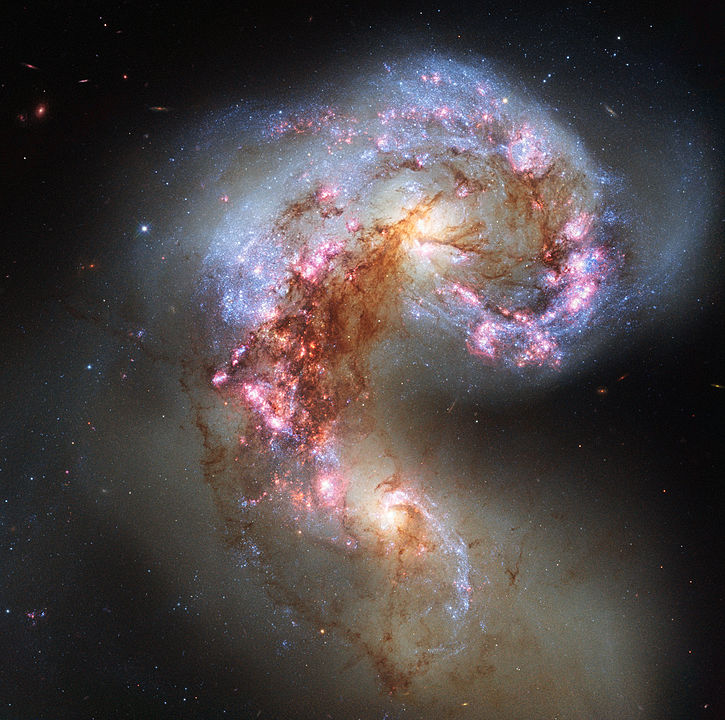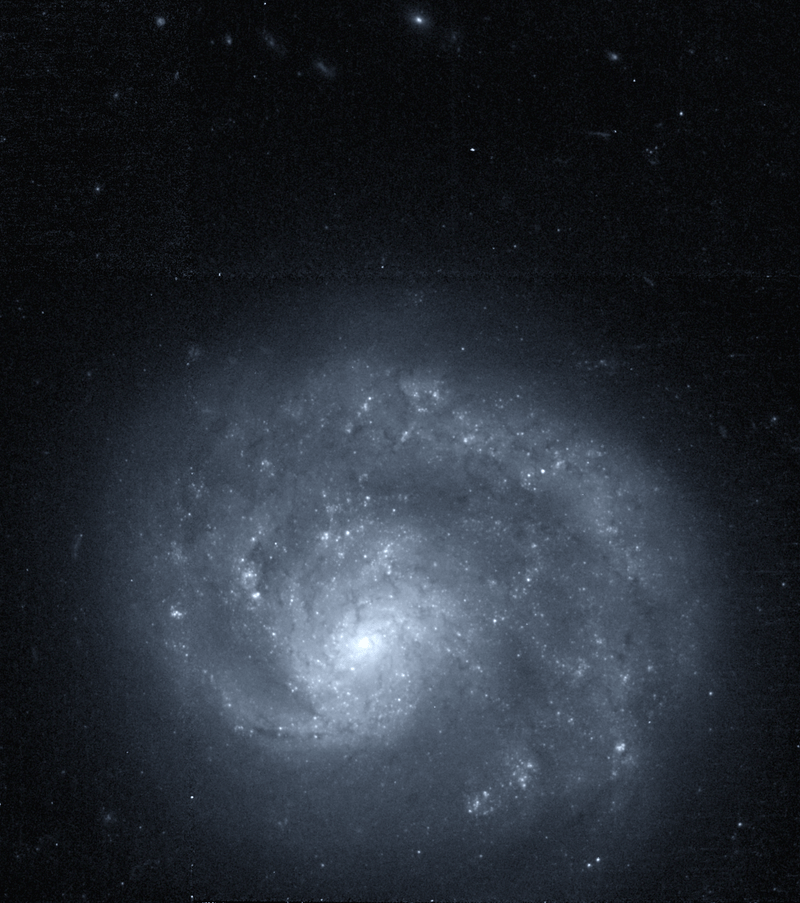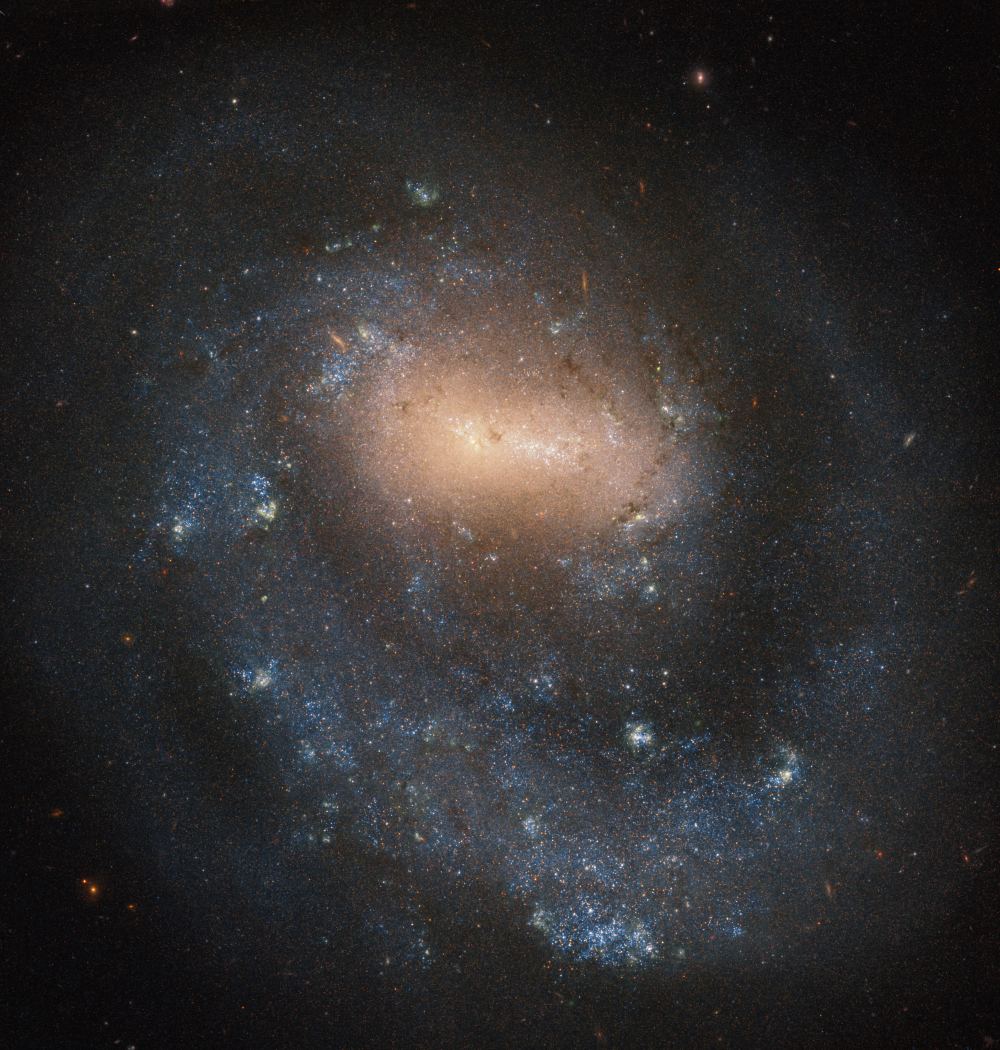There are all kinds of odd things in the sky. Things that defy our naming conventions, and our attempts to understand them. For instance, NGC 4618, the one-armed galaxy.
A spiral galaxy with only one arm may not top the list of cosmic oddities, but it does capture the minds of curious astronomers. The obvious question is: why does it only have one arm? Well, nobody’s absolutely certain yet.
William Herschel discovered NGC 4618 in 1787, about 6 years after his most famous discovery, Uranus. He built powerful telescopes that allowed him to make these discoveries. Herschel made numerous other discoveries as well.
Herschel also theorized that the fuzzy clumps astronomers saw in the sky, and which were called nebulae in the Messier catalog, were actually groups of individual stars, but that they were too far away to be discerned. Now we know he was right, and every school-kid knows about galaxies, and that we live in one.
The one-armed galaxy is about 21 million light years away, in the constellation Canes Venatici. It’s about one-third the diameter of the Milky Way. In the “Atlas of Peculiar Galaxies” NGC 4618 is one of only three one-armed spiral galaxies.
So why does it have only one arm?
That’s not an easy question to answer. The obvious place to start is to look at neighbouring galaxies and see if they’re interacting gravitationally. Those sorts of interactions are known to drive the morphology of some galaxies. We have tons of examples of that.

NGC 4618 does have a neighbour, and it’s name is NGC 4625. It’s called a distorted dwarf galaxy, and is also known as an Sm galaxy. That means it’s “irregular in appearance” and has “no bulge component” according to the De Vaucouleurs system of galaxy morphologies.

But even though they’re sometimes called an interacting pair of galaxies, at least one study concluded that may not be the case, and any interactions can’t explain the one-armed galaxy. The paper is titled “High Resolution H I Distributions and Multi-Wavelength Analyses of Magellanic Spirals NGC 4618 and NGC 4625.” It was published in The Astronomical Journal in 2012.
In that paper the authors say, “The goals of this work are to re-examine the issue of whether these two galaxies are indeed interacting and what effect such an interaction may be having on both NGC 4618 and NGC 4625, particularly with regard to star formation.”
They also say “The notion that NGC 4618 and NGC 4625 are interacting is conveniently consistent with the idea that the asymmetric nature of Magellanic spirals is the result of an interaction with a close neighbor (e.g., Odewahn 1994). The apparent proximity of the galaxies to one another and the apparent overlapping H?i distributions are highly suggestive of an interaction.” Highly suggestive is great, but it’s also not conclusive.
Much of the argument in favor of the two galaxies interacting is based on a bridge of gas connecting them. But the authors say that according to their observations, the “gas believed to be the bridge connecting the two galaxies actually have two well-defined and separate kinematic components. This observation makes a strong case against an ongoing interaction between the NGC 4618 and NGC 4625 galaxies…”
Their conclusion is that “Despite the apparent overlap of the outer disks of the two galaxies, we find that they are kinematically distinct, indicating that NGC 4618 and NGC 4625 are not interacting. The structure of NGC 4618 and, in particular, the nature of its outer ring are highly suggestive of an interaction, but the timing and nature of such an interaction remain unclear.”
So there we have it. There must be some sort of intrinsic process in NGC 4618, the one-armed galaxy, that’s caused it to have only one arm. But finding out what that might be needs further study.


It’s odd that no one has yet mentioned the Large Magellanic Cloud is also a 1-armed spiral albeit one that is not a distinct as this one is. I’ve read that it probably looked like this one before interactions with the Milky way and the SMC cost the LMC jumbled its structure and made its single-arm hard to see through more recent astronomical images of the LMC have done a great job of bringing that feature out.